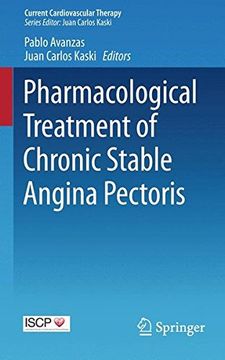Share
Pharmacological Treatment of Chronic Stable Angina Pectoris (Current Cardiovascular Therapy) (in English)
$ 66.31
$ 69.99
You save: $ 3.68
Choose the list to add your product or create one New List
✓ Product added successfully to the Wishlist.
Go to My WishlistsIt will be shipped from our warehouse between
Thursday, May 30 and
Friday, May 31.
You will receive it anywhere in United States between 1 and 3 business days after shipment.
Synopsis "Pharmacological Treatment of Chronic Stable Angina Pectoris (Current Cardiovascular Therapy) (in English)"
This book is intended for general cardiologists and other physicians involved in the care of patients with chronic stable angina (CSA). The goal of this book is to update clinicians on recent data on the medical management of patients with CSA. Ischemic heart disease remains a major public health problem. Chronic stable angina is the initial manifestation of ischemic heart disease in approximately one half of patients. Stable coronary artery disease is generally characterized by episodes of reversible myocardial demand/supply mismatch, related to ischaemia or hypoxia, which are usually inducible by exercise, emotion or other stress and reproducible―but, which may also be occurring spontaneously. Such episodes of ischaemia/hypoxia are commonly associated with transient chest discomfort (angina pectoris). The aim of the management of CSA is to reduce symptoms and improve prognosis. The management of these patients encompasses lifestyle modification, control of coronary artery disease risk factors, evidence-based pharmacological therapy and patient education. All patients with stable angina should be offered optimal medical treatment, defined as one or two anti-anginal drugs as necessary, plus drugs for secondary prevention of cardiovascular disease. Regarding the role of revascularization, randomised trials provide compelling evidence that myocardial revascularisation by coronary artery bypass grafting or by percutaneous coronary intervention improves symptoms of angina relative to continued medical treatment.
- 0% (0)
- 0% (0)
- 0% (0)
- 0% (0)
- 0% (0)
All books in our catalog are Original.
The book is written in English.
The binding of this edition is Paperback.
✓ Producto agregado correctamente al carro, Ir a Pagar.

